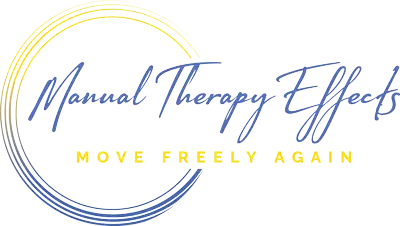Hot summer days are here. With that, the risks of heat illnesses with exercise can be high if not accustomed to exercising in it or prolonged exposure to it.
I recently had a minor scare after a recent half iron triathlon race. Now, I’m a seasoned athlete and I have a good sense of how my body deals with heat. I’ve studied and read all the different strategies on how to keep cool in hot weather conditions. Over the years, I have raced many in 90 plus degree heat and humidity. A few of them landed me in the medical tent in the aftermath, but came away with very little drama. Ice, fluids, an IV and good to go after 30-40 min.
Dehydration can lead to cramps, which can lead to heat exhaustion and maybe heat stroke.
When you dehydrate, your blood volume will tend to “thicken”. All the fluid loss from your bloodstream to cool your body and feed your muscles starts to become inefficient. Your heart rate goes up in an effort to meet the demands of your working muscles in order to pump the blood out more rapidly. Remember the viscosity of your blood flow is diminishing. Much like the oil in your car, in order to keep the motor running, optimal viscosity is necessary to run smoothly. Too thick and the engine runs poorly as the pistons fight to keep up through the “sludge”.
Muscle cramping can occur if electrolyte levels are off as a result of fluid loss. Your body is trying to maintain a balance, but supply is low while the demand to perform is high. Muscle cramping may also occur with unaccustomed exertion. Personally, I have experienced this on many occasions. Usually at the first race of the year. Within the first mile off the bike, the subtle grabbing and tightening sensation of the muscle (quadriceps) which heightens as you continue to run through the initial onset. As soon as you stop or slow, the muscle goes into a full blown seizure of Charlie horse proportions. The cramping in this case dissipates after the first mile, but the damage of the cramp has been done. The cramp is so intense it practically strains the muscle. The soreness ensues, but you keep running despite the soreness.
With dehydration based cramps, they occur later in an event as you sweat out fluids and your electrolytes. If you fail to keep up to minimize the losses, then your body will slowly tighten and eventually lead to cramping as a result.
Excessive heat exposure or excessive unaccustomed heat exposure can lead to heat exhaustion. Along with the cramps, you will sweat excessively, skin will be cold and clammy, have feelings of dizziness and nausea among other symptoms.
If you push it far enough, your body may venture into heat stroke. While similar in symptoms to heat exhaustion, the key differences: you’ve stopped sweating, your skin is red, dry, and hot, your core temperature is 104-105 degrees (depending on the source), confusion, and rapid heart rate. This not an exhaustive list, but gives you an idea of the key differences. When your core temperature starts heading north, your body’s thermoregulatory systems begin to short circuit and fail to do their job in maintaining your homeostasis. It’s a medical emergency. Stay at a high temperature and you start to kill off brain cells.
As I alluded to earlier, I had a recent minor scare after the finish of a race. Little did I know how bad a shape I was in until I was dragged off to the medical tent. Here is an excerpt from my race report of the post race carnage that unfolded:
“Post race: The volunteers immediately noticed and call for medical. As I am standing there near the barrier, they asked me what’s going on. All I said was I was HOT. They draped me in cold towels as they wheeled me off to medical. There were other athletes in the tent dealing with heat stress as well. They picked me up and plopped me on a cot, stripped off my shoes and socks along with my hat/sunglasses. I was at the mercy of the medical staff. I felt so bad I didn’t care. They proceeded to take my temperature. This was not the thermometer in the mouth or ear thing…oh they went with a rectal temperature. Ok, hold up…you guys are gonna do what? Sure enough, I had no choice in the matter. My core (literally) temperature was at 103 degrees. I knew that wasn’t good.
That was by far THE WORST medical tent experience I have ever endured. Usually it’s take your vitals, give you IV, put ice packs in your groin, armpits, neck, cold towels to your extremities and call it a day.”
This is the emergency procedure for someone heading towards heat stroke. Unfortunately, I learned this through personal experience. The medical staff was treating me as a medical emergency and aggressively.
In hindsight, I know where I failed to execute what I should have done to avoid this scenario. You can exercise in hot conditions. You have to stay hydrated and you have to make sure your core temperature stays regulated. You also need to acclimate to the conditions. Physiologically, your body adapts to hot conditions to improve your tolerance and ability to keep working out during the summer months. Typically the more fit an individual is, the more tolerant they are to environmental changes. They can adapt quicker. For full heat acclimation to occur one must expose themselves for 2 weeks to allow the body to adapt. In a week, you are mostly heat acclimated, but to be fully adapted, 14 days.
